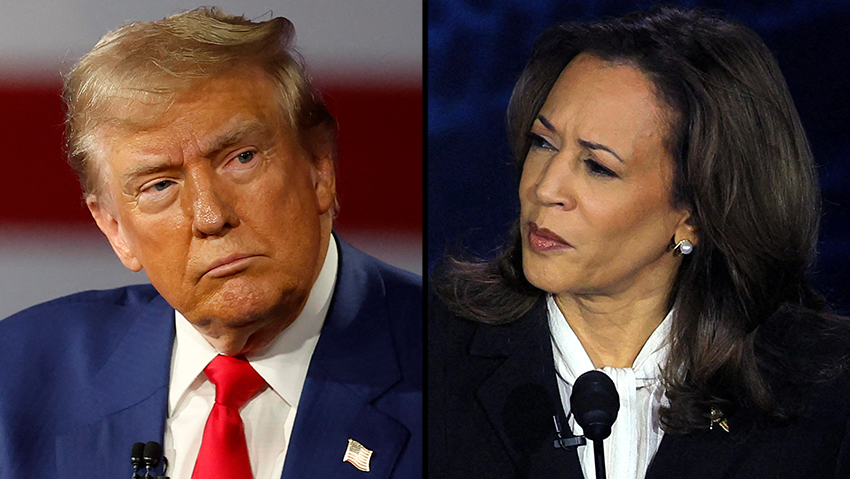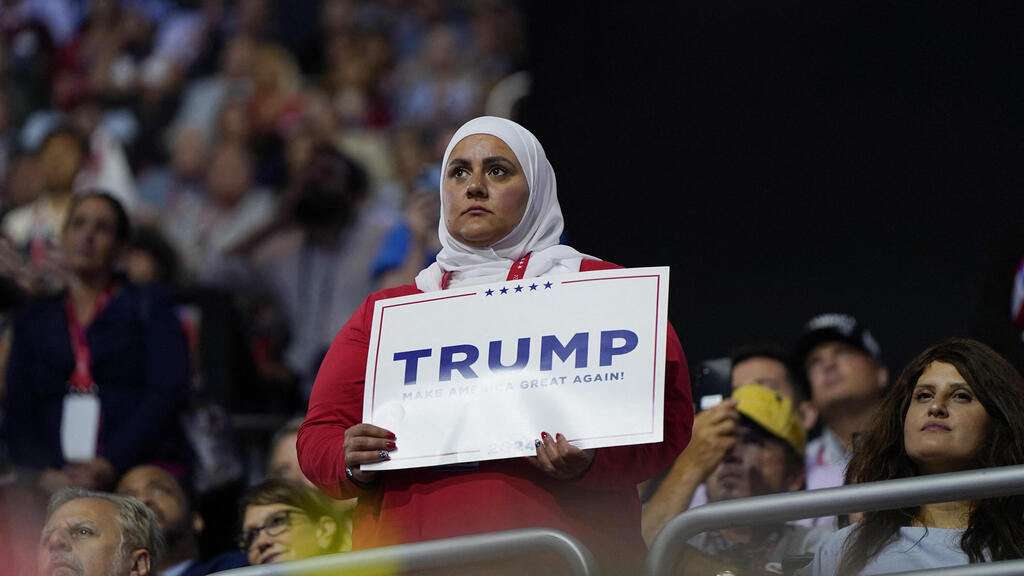Getting your Trinity Audio player ready...
One of the hot topics in the upcoming U.S. elections in November is the political influence of the American Muslim community, which for the first time appears to have real potential to significantly impact the candidates.
This reality has been taking shape over the past few decades, particularly in the post-9/11 era, when many within the Muslim community became actively involved in social and political movements. They sought to blend Islam with activism in an effort to improve their image and strengthen their national identity, both of which were negatively affected after the attacks. These changes led, among other milestones, to the election of the first Muslim congressman, Keith Ellison, in 2006.
In recent decades, American Muslim activism on behalf of Palestinians has often surged after Israeli military operations in Gaza, such as Operation Protective Edge or Guardian of the Walls. However, Hamas' attack on October 7, 2023, served as a catalyst that pushed this activism to unprecedented levels. The response to the massacre that ignited the large-scale war in Gaza – where tens of thousands of Palestinians have been killed so far – has fueled an unprecedented rise in anti-Zionist discourse among many prominent Muslims in the U.S. Harsh criticism from voices within the Muslim community has been directed at the Biden administration for its support of Israel. In Washington, D.C., the largest pro-Palestinian protest ever held on American soil took place, with 400,000 participants.
Despite their relatively small numbers, Muslims in America – who make up the third-largest religious group after Jews and Christians – may hold significant sway in swing states like Michigan, Pennsylvania and Georgia, thereby amplifying their influence on the presidential election. A decline in Muslim support for the Democratic Party was evident even when Biden ran for president, and some argue that replacing him with Kamala Harris brought a slight improvement in relations with the Democrats.
However, while Biden is widely seen as pro-Israel, Harris is also viewed as part of his administration that backed Israel’s war in Gaza, continuing the U.S. policies toward Israel. One of the major disappointments with Harris and the Democratic Party among segments of the Muslim and Arab community stemmed from their refusal to allow a Palestinian representative to speak at the Democratic National Convention. Although there was a Black Muslim representative, many in the community were eagerly awaiting Palestinian representation, given the ongoing war.
This example highlights not only the growing tension between American Muslims and the Democratic Party, but also the striking diversity within Islam in America – a community composed of people from 75 countries around the world. One challenge posed by this religious, cultural and ethnic diversity is the internal disagreements that make it difficult to unite as a single voting bloc. For instance, a significant portion of the African American Muslim community prioritizes domestic challenges, such as fighting Islamophobia and racism, while Arab Americans, especially those of Palestinian descent, see the fight for Gaza as their top priority.
The Democratic Party has been considered a natural political home for many Muslims since 9/11, as it showed empathy for their precarious situation following the attacks. But since the war in Gaza, some Muslim voices have called for punishing the Democrats for their ongoing support of Israel. Voting for the Green Party, led by Jill Stein, may reflect the anger of Muslim and Arab voters who feel disappointed by the Democrats and want to use their votes to push for a future embargo on aid to Israel. Still, much like Barack Obama, Harris’ multicultural identity might serve as an advantage, as it reflects the growing demographic diversity in the U.S. and the rising influence of minorities in a country that is becoming less white over time.
In any case, the growing political power of the Muslim community in the world’s most influential Western nation is already evident – a reality that could harden U.S. foreign policy positions in the future, with significant implications for Israel and the world’s largest Jewish community, particularly in the post-October 7 era.
Dr. Elad Ben David is an expert on Islam in the United States and a research fellow at the Forum for Regional Thinking



